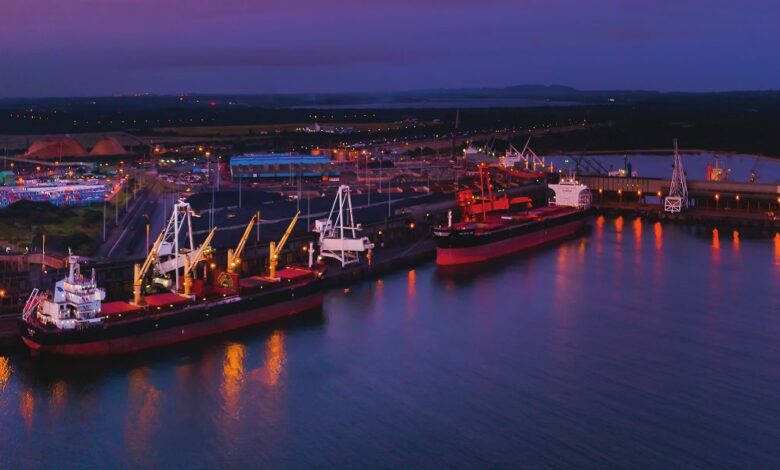South Africa’s exporters brace for major hit as Transnet strike gains momentum

Industrial action at South Africa’s ports and freight-rail operator Transnet is set to worsen as the second-largest labor union, the South African Transport and Allied Workers Union (SATAWU), downed tools on Monday in a dispute over pay.
SATAWU and the largest labour group, the United National Transport Union (UNTU), together representing around 80% of Transnet workers, confirmed that their members would be on strike for an indefinite period, which could affect all the country’s ports.
The two unions last week turned down Transnet’s offer of a 3% to 4% wage rise, saying it was below South Africa’s annual inflation rate, which was 7.6% in August. The operator maintained its revised offer was reasonable, fair and deserved serious consideration, saying its wage bill already accounted for 66% of monthly operating costs.
Transnet, which declared force majeure at its ports on Thursday, has been for some time operating below capacity due to a shortage of locomotives, inadequate maintenance, vandalism and theft of its infrastructure, already costing miners billions of rands in potential revenue.
The ongoing impasse between recognised unions and Transnet is devastating to the economy
While it has maintained that its terminals at ports have not come to a standstill, exporters have warned of devasting economic effects if operations at the state-owned ports in Durban and Cape Town are suspended for an extended period of time, calling for urgent resolution of the wage negotiations between Transnet and its striking workers.
The country’s miner Kumba Iron Ore, a subsidiary of Anglo American that exports the bulk of its iron ore to China, Europe, Japan and South Korea, warned its production and exports will be hampered by the strike, while South Africa’s major thermal coal shipper Thungela Resources said a prolonged strike could cut as much as 300,000 tonnes of production, with other exports of bulk commodities also being impacted.
Meanwhile, the South African Berry Producers Association, which at the moment is the most affected fresh produce category, has urged the government for a forceful intervention in the strike, warning that more than a third of local berry producers were not profitable and were under severe threat.
“The latest strike action could be the final nail in the coffin for berry farmers who fill a critical gap in the labour sector, due to their harvest season running from September to November before the early stone fruit and table grape harvest season commences,” the association said.
The South African Association of Freight Forwarders also joined the call for the urgent resolution of the wage negotiations to maintain the supply chains. “The ongoing impasse between recognised unions and Transnet is devastating to the economy, much worse even than the ongoing energy crisis,” warning that logistics delays could hit the economy by up to $56m per day.
The Western Cape government said a prolonged strike at Transnet would severely hurt the economy as over 127,000 people have formal jobs due to goods exported through the Cape Town port.
“Every effort must be made to ensure that Transnet’s business continuity plans are fully implemented to ensure that our ports and container terminals, as key arteries of our economy, continue to function,” noted Mireille Wenger Western Cape head of finance and economic opportunities.
